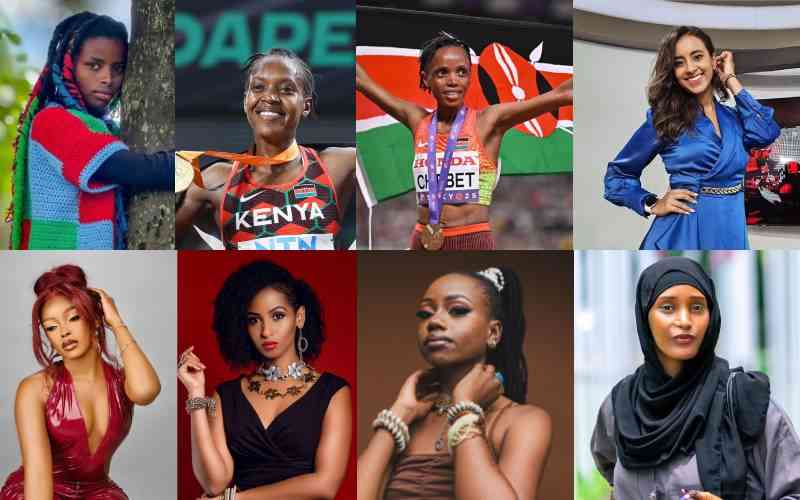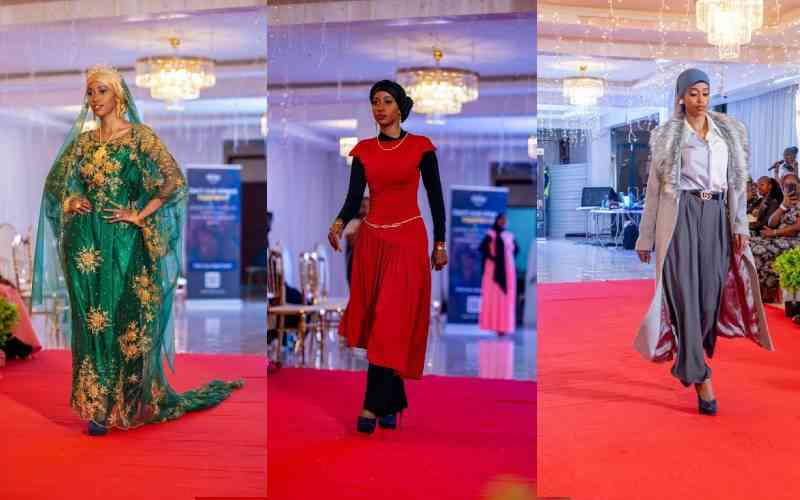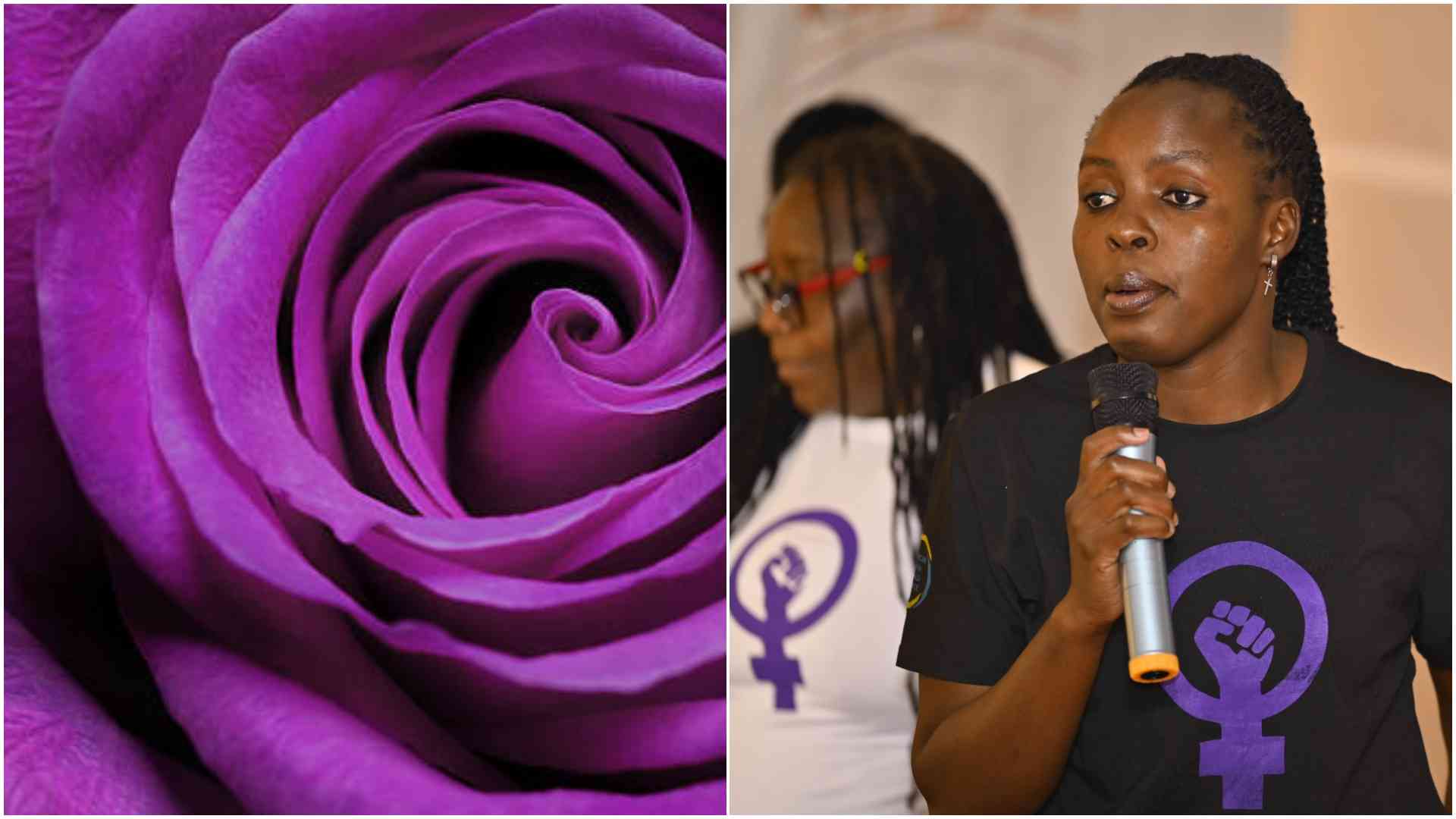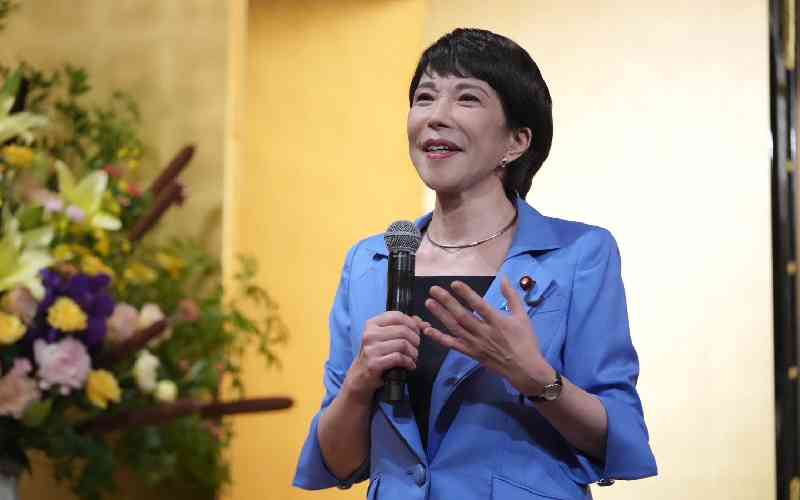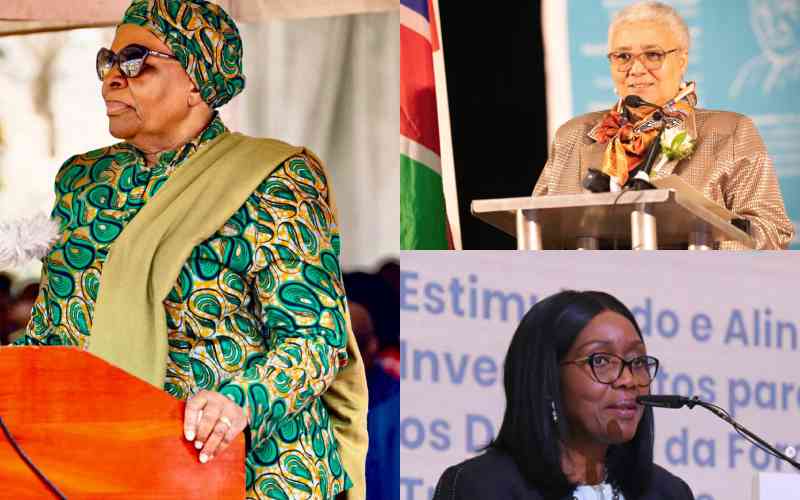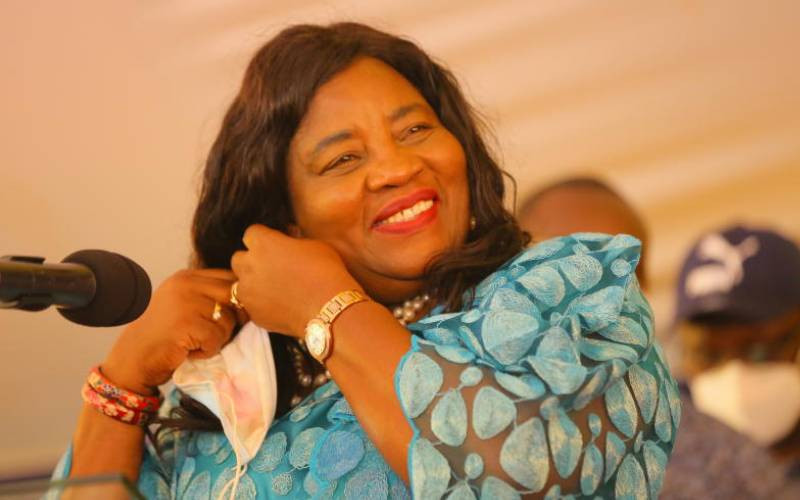
Laughter can be heard from inside the compound, by the sound of it, a ball is being gleefully kicked around. As I pushed open the gate, the pitter-patter of feet comes to a halt and I am met by a red football and two young girls playing with Vivian Karimi.
Walking into Clover House, there is a sense of peace and warmth that washes over the mind. Six chairs surround a centrally placed table, reminiscent of a group counselling session. As the girls usher me into the room, they do not shy away from my gaze, instead they hold it comfortably.
“We teach the girls about open communication, to be clear, simple and approachable; to pay attention to whomever is talking while maintain eye contact,” says Karimi.
This is a story about the silent cry of a young girl who, at the tender age of five, was flung into a situation that no little girl should ever have to endure.
The girl was left behind by her parents and left in the care of people who really did not pay much attention to her. As a result, she suffered through a series of sexual abuse encounters.
She became a sexual object to some of the male adults while her cries went unanswered.
“I have always wondered about the care that farmers take of their crops. For instance when the beans are at the flowering stage in the farms, they lock in their chickens in sheds to allow the fertilisation stage and only release them well after the beans have formed. Ironically, the same care and keenness was not reflected in protecting this innocent girl.”
As Karimi tells the story, it dawns on me that the little girl who was so wrongfully treated all those years ago stands before me, a strong and resilient woman.
“I was robbed of my core existence by the people that I had put all my trust in. I was left vulnerable voiceless and embattled with psycho-social dysfunctions while my emotional being was tossed in turmoil – low self-esteem, rejection, self-destruction and anger became my new found companions.”
When a child is introduced to sex at a young age, they end up relating with others through sex. The child has no understanding of love and the very essence of sex is distorted. The psychosocial effects on the child is overwhelming and continues into adulthood, Karimi explains.
“It is an ugly self-perpetuating cycle because an abused girl turns into an abusive wife and the cycle continues into the next generation.”
It is important to note that most abusers are mostly victims of some form of abuse, which is why Karimi insists on seeking help for the victims. It is her own personal traumatic experience that moved Karimi to actively make a difference.
“I do understand these girls and I am able to relate to them. I understand their confusion, pain and hurt. I know they need help!”
To this end, she began the dedicated work of providing solace for young girls’ through an initiative which grew into a non-governmental organisation, called The Vivian Karimi Foundation - Clover House, which registered in 2013. The NGO creates awareness on sexual abuse and seeks to rescue girls aged from 5 to 17 years from sexual abuse or environments that can lead to abuse.
“This is a place where we don’t just see survivors of sexual abuse but treasures that need to be nurtured. Currently we work in partnership with Spice Without Borders, an organisation that believes in the creative and critical voice of the women.”
Today Karimi is a catalyst of social change, an immovable pillar and guardian of the abused. Together with organisational partner, Spice Without Borders – a women-centered organisation – the run the rescue home, Clover House, for young girls traumatised by sexual abuse. She uses her personal story to transform mind sets and change the lives of victims of sexual abused.
The fabled four-leaved-clover is the symbol of the Clover House as it represents faith, hope, love and luck. The foundation identifies and rescues victims of sexual abuse from underprivileged backgrounds.
“At the time of rescue, our found treasures are imbalanced and so we ensure they are at peace and safe from their shattered environments. We help them deal with their emotional trauma and take them through a healing process.”
According to Karimi, fear is turned into courage, worthlessness into self-worth.
“Through love, the girls are reassured and affirmed of themselves and this starts to reflect positively leading to healthy values, character and faith.” The foundation also empowers the girls with skills for self-reliance and nurtures their talents.
Karimi is the first of three children born to Mr and Mrs Nyaga, in the late 1970s on the foothills of Mount Kenya.
“Growing up was full of pain. I grew up thinking something was wrong with me but now I know I was psychologically in distress and people around me could not understand,” she confesses.
A quiet and reserved girl in school, and although she was an average student she beat all odds to shine wherever she could.
Karimi is conflicted by the institutional attention and support afforded to high achieving students, in comparison to those who perform less than excellent.
“I have my reservations against scholarships that target the very bright, not because this is wrong, but because most children who do not do well are not foolish. They are bright and hurting. They sure need help too,” she says with passion.
Although Karimi is indeed a mother to many, she has two children of her own, girls Terry-Hope (10) and Kelly-Joyce (14).
“I can only thank God that I never abused my children but on the other hand, I became over protective to them,” she says, a pensive glaze.
As a born again Christian, Karimi puts all her faith and work in the hands of God.
“I have no idea how I would have survived if I did not have a relationship with my God! Christ is all to me. People forget that we are all not perfect but we seek to be made perfect by the mercies of God.”
Since 2013, the foundation has rescued 34 girls from environments of sexual and physical abuse.
Although the house had to shut down in November last year for lack of funding, it was up and running just two months later.
“Before we closed, we had 12 girls in 2015 whom we reconciled back to their families and others who were placed in children homes,” says Karimi, adding that the rehabilitation programme usually lasts one year.
“It takes a lifetime to heal because it is a process. This shows how important it is that victims get help as early as possible.”
“We currently have four girls in the house who need our help,” she says. Her voice is filled with gratitude as she tells of good Samaritans who contribute what they can to help keep the house of solace open. With further support,
Karimi says, the foundation can rescue 20 - 30 girls per year. Karimi still follows up on the former girls who have been re-united back to society, to her this is equally a priority.
According to Karimi, awareness of these issues is key. She hopes to reach out to corporates, churches and schools respond to our requests for awareness. In addition, 2017 will see the launch of an incubator project for young ladies who will be equipped with skills to help victims and spread awareness, all in an effort to end the injustice towards the children.
Clover House needs all manner of support – material, moral, financial and logistical. Karimi is seeking out solid partnerships in areas of psychosocial counselling, health and special education.
“This is a noble task that solves a problem for generations to come. One abused girl will hurt many people in her life including her own. If she is not helped to heal, she mothers children when still hurting and will abuse her children who then become victims of abuse and abusers and the cycle continues. Helping one girl solves a problem for good.”
As of next year the foundation in partnership with Spice without Borders will be initiating a six-month leadership incubator extended to women from the backyard of society aged 22 years and over. They will be empowered to initiate projects in their communities.
 The Standard Group Plc is a multi-media organization with investments in media
platforms spanning newspaper print
operations, television, radio broadcasting, digital and online services. The
Standard Group is recognized as a
leading multi-media house in Kenya with a key influence in matters of national
and international interest.
The Standard Group Plc is a multi-media organization with investments in media
platforms spanning newspaper print
operations, television, radio broadcasting, digital and online services. The
Standard Group is recognized as a
leading multi-media house in Kenya with a key influence in matters of national
and international interest.



